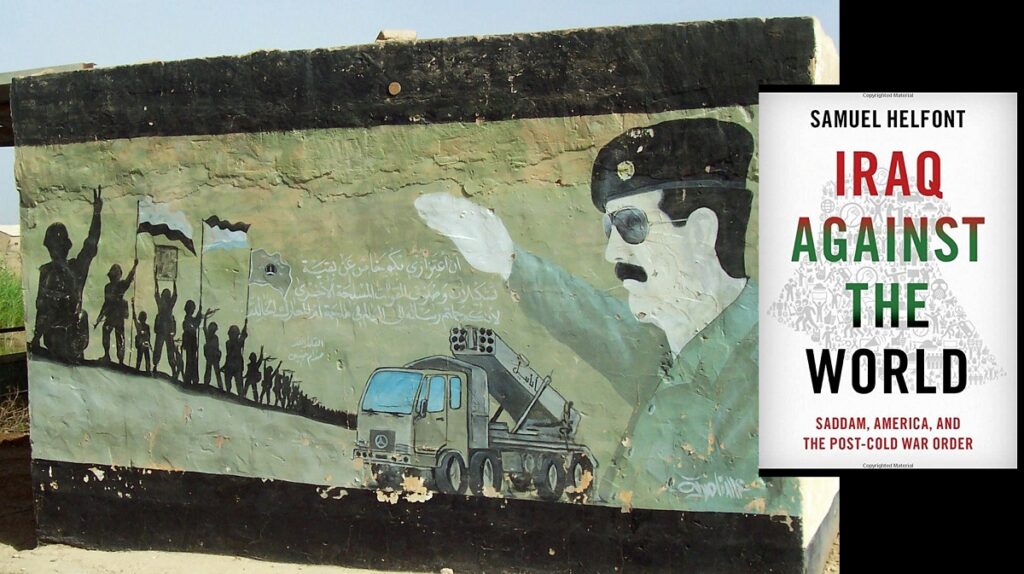2023 is, of course, the 20th anniversary of the United States’ invasion of Iraq. There has already been and surely will be much more examination of the event and the subsequent consequences of the war but very little of the analysis has been from the viewpoint of the Iraqis. Sam Helfont changed that with his new book Iraq against the World: Saddam, America, and the Post-Cold War Order. He joins podcast editor, Ron Granieri, to explain how he gained access to internal Ba’th Party files that reveal the foreign policy, inner workings and previously unknown actors in Saddam Hussein’s regime. It’s a fascinating discussion of the decade leading up to the invasion from the view of the Iraqis, and how they were able to disrupt global norms and divide western states.
The Iraqis understood that this coalition that had formed against it during the Gulf War was going to be a problem. This was the same coalition that was imposing sanctions and these weapons inspections on Iraq throughout the 1990s. And the Iraqis attempted to break up this coalition.
Podcast: Download
Samuel Helfont is an Assistant Professor of Strategy and Policy in the Naval War College program at the Naval Postgraduate School in Monterey, California. He is a Senior Fellow at the Foreign Policy Research Institute in Philadelphia and the author of Iraq against the World: Saddam, America, and the Post-Cold War Order (Oxford University Press, 2023).
Ron Granieri is Professor of History at the U.S. Army War College and the Editor of A BETTER PEACE.
The views expressed in this presentation are those of the speakers and do not necessarily reflect those of the U.S. Army War College, U.S. Army, or Department of Defense.
Photo Description: A large mural painting of former Iraqi dictator and supreme military commander Saddam Hussein, painted on a wall in a rural area located north of Baghdad, Iraq. Photograph taken during Operation IRAQI FREEDOM
Photo Credit: Jim Gordon, CIV via the U.S. National Archives

